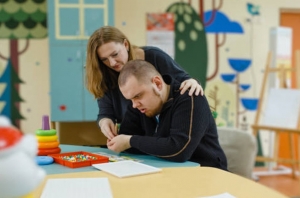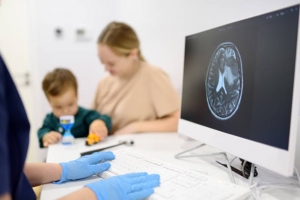The number of children referred to mental health services for neurodevelopmental conditions such as autism and ADHD has risen by nearly 30%, despite these not being classed as mental health conditions. A new report from the Children’s Commissioner reveals growing pressure on services and significant delays in care.
As of March 2024, more than 958,000 children in England had active referrals to Children and Young People’s Mental Health Services (CYPMHS), up by 10,000 from the previous year. Children with suspected autism are facing some of the longest delays, with 64% still waiting for treatment and average waiting times reaching 223 days.
The most common referral reason was anxiety (16%), followed by neurodevelopmental issues excluding autism (11%), suspected autism (6.8%), and children in crisis (6.2%). The report also found stark regional inequalities, with average waits ranging from six days in Leicester to over 100 days in Hampshire.
Children’s Commissioner Dame Rachel de Souza has called for urgent action, including an independent review of autism services and greater investment in community-based support, particularly for children from marginalised groups. Without meaningful reform, many children risk missing out on education and vital developmental support.
A new NHS initiative is being launched nationwide to help reduce the risk of avoidable brain injuries in newborns during childbirth. The programme, called Avoiding Brain Injuries in Childbirth (ABC), is designed to support maternity staff in recognising signs of distress in babies during labour and taking timely action to prevent long-term conditions such as cerebral palsy.
Set to begin in September, the programme has been developed with input from hundreds of maternity professionals, including midwives, anaesthetists and obstetricians. It follows a successful trial across nine maternity units and is being led by the Royal College of Obstetricians and Gynaecologists, the Royal College of Midwives, and The Healthcare Improvement Studies Institute (THIS Institute).
The ABC programme focuses on improving care in two key risk areas: detecting and responding to signs of fetal deterioration during labour, and managing cases where a baby’s head becomes stuck during a caesarean section. By introducing evidence-based tools and consistent protocols, the aim is to help teams deliver quicker, more coordinated care in emergency situations.
Health Secretary Wes Streeting emphasised the importance of the programme as part of wider reforms to improve maternity services. He also highlighted ongoing efforts to recruit and train more midwives and ensure women’s voices are central to future changes in maternity care.
Netflix is supporting a unique drama diploma created specifically for autistic individuals and people with learning disabilities, aiming to improve disability representation in the UK’s television industry. Although 20% of the UK population lives with a disability, only 8% of TV characters reflect this – a gap this initiative hopes to close.
The diploma, developed by Access All Areas in collaboration with The Royal Central School of Speech and Drama, is the first of its kind globally. It focuses on nurturing students’ creativity while building confidence, communication skills, and independence. Feedback from previous cohorts has been overwhelmingly positive, with most reporting personal growth and a stronger sense of self-expression through the performing arts.
Since its inception in 2013, nearly 80% of graduates have gone on to work professionally in the creative industries. Alumni have landed roles in popular television dramas and collaborated with major broadcasters and theatres across the UK, including the BBC, ITV, National Theatre, and the Royal Court. This programme is helping to pave the way for a more inclusive and representative entertainment industry.
Netflix says its involvement is part of a long-term commitment to amplifying diverse voices, supporting new talent, and helping to break down barriers faced by disabled and neurodivergent artists.
Autism diagnoses have surged dramatically in recent years, with figures in the UK showing an eightfold increase since 1998. Experts suggest this growth is not necessarily due to a rise in the number of autistic people, but rather a broader definition of what autism includes. Once focused on children with high support needs, the diagnostic criteria now encompass a wider range of traits, including those found in people previously diagnosed with Asperger’s and PDD-NOS.
This expanded understanding has led to greater recognition of autism in adults and women, two groups historically underdiagnosed. Girls, in particular, often mask their traits and were more likely to be diagnosed with mental health conditions in the past. Increased awareness and updated research have helped identify many previously overlooked cases.
The shift has also seen more adults receiving diagnoses, often with fewer support needs. Some see this as overdue recognition, while others worry that public understanding is being skewed by a focus on "milder" portrayals in media.
Though some speculate environmental factors may play a role, researchers like UCL’s Ginny Russell argue the rise in diagnoses is largely cultural. Changing perceptions and a wider net for diagnosis explain the boom, with genetics still seen as the main underlying cause of autism.






